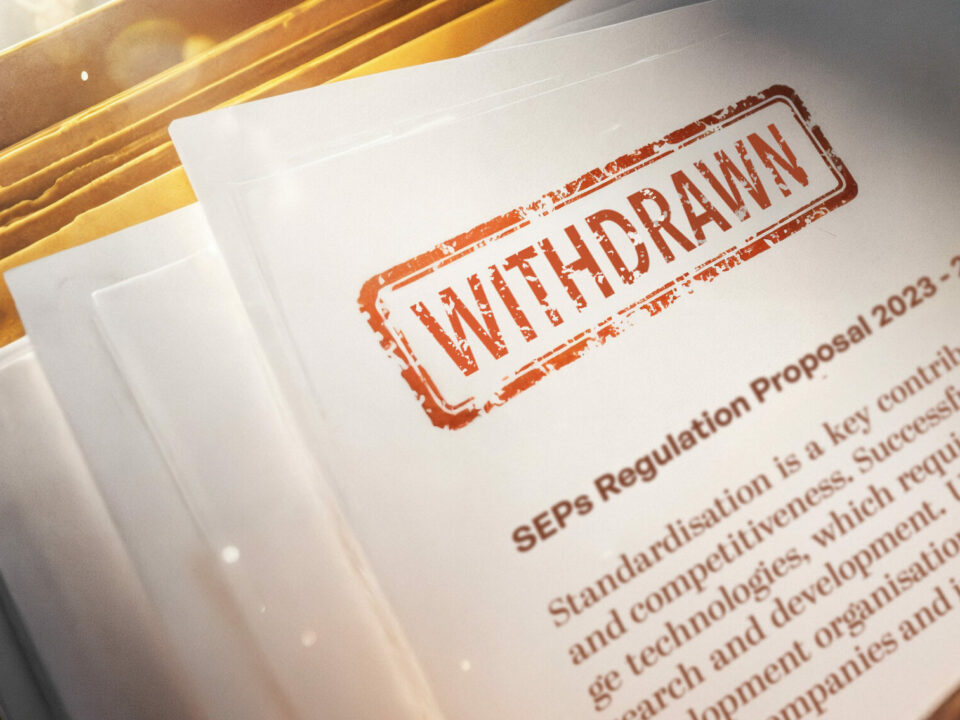European elections: Political groups promised the Europe we all want
In the run-up to the European elections, the European Parliament’s leading political groups promised to promote research, innovation, digital technologies and Europe’s strategic autonomy. We sincerely hope that they keep those promises.
In case you missed the news, the 2024 European elections have confirmed a centrist, pro-European majority despite strong gains from far-right groups. The Greens lost big. European Commission President Ursula von der Leyen is hoping the relative continuity bodes well for her bid for a second-term at the wheel of the EU executive body.
Leading groups support European leadership in R&D
The good news is that the election manifestos of most of these parties and political groups included strong wording supporting European research, innovation, and leadership in digital technology. They all said they wanted to help European SMEs. Most also stressed the need for Europe to invest in its security, respect the rule of law and build a dynamic and competitive economy. For example:
- The European People’s Party said, “We want Europe to shape and lead the future by investing in state-of-the-art infrastructure, innovation and digital technologies” and “We need to succeed in mobilising more private savings.” We agree.
- The European Conservatives and Reformists group said it would prioritise “investment in technology and security”. It also said it would “strengthen the autonomy of the EU”, “drive research and innovation”, and promote “rock-solid agreements that uphold intellectual property”. We agree.
- The Renew Europe group said, “We need to focus on investment in research, development, innovation and people and attract private investment to make Europe more competitive and sustainable.” We agree.
- The Progressive Alliance of Socialists and Democrats group said it would “promote the respect of international law”. It also said it wanted “A strong and competitive European economy that prepares its industries and SMEs for the future” and “to strengthen Europe’s sovereignty by delivering security of supply in energy, raw materials, technologies, medicines and food through investments and international trade.” We agree.
- The European Greens said they “choose prosperity” and that their proposed Green and Social Deal “will build a dynamic and competitive economy.” We agree.
All of that strikes the right chords for IP Europe, which champions policies that drive innovation, growth, job creation, and the emergence of the technologies of the future.
The bad news is that the outgoing European Parliament and European Commission failed to uphold those commitments in the case of standard-essential patents, or SEPs.
Why standard-essential patents matter
Standard-essential patents, like the name suggests, are patents for technologies that enable the functioning of an open standard. Global open standards such as 4G, 5G, Wi-Fi, and MPEG4 and AAC– the video and audio compression standards used by most major streaming music and video platforms–usually include significant technological improvements over previous standards.
The vast majority of these improvements come from technologies developed by private companies, which contribute their inventions to be included in the standard in exchange for a fair, reasonable and non-discriminatory (FRAND) return on their investment.
This system has served Europe well for many decades. European companies including Nokia, Ericsson, Philips, Orange and the Fraunhofer Institutes have continuously invested in cutting-edge technical innovation and contributed their inventions to global open standards. The royalties they receive from that process provide the seed capital necessary to continue to enable investments in the steady improvement of standards.
Patents enable secondary innovation
Other industries powered by these open standards include some of the fastest-growing the world has ever seen: cellular telephony, cellular-enabled services, and streaming audio and streaming video, to mention just a few.
European SMEs have used those open standards to sell their products and services world-wide, knowing that the standards ensured they would seamlessly inter-operate with any other products and services that use the same standards anywhere in the world.
European wind farms, mobile health and connected mobility services, among many others, depend on the same open standards.
Despite this virtuous circle of investment, innovation and growth, the outgoing European Commission and European Parliament rushed through a new proposal for a Regulation on Standard-Essential Patents that would radically change the economic incentives on which many features of technical standards development are built.
A promise made…
The European Commission ignored the advice of the very consultants it had hired to evaluate the state of play in SEPs. The European Parliament ignored repeated warnings from IP Europe members and other prominent figures that its initiative would break the virtuous circle and would amount to an own goal for Europe.
We have already reported in detail on this blog why we think the outgoing Commission and Parliament got it wrong.
We hope that the newly elected MEPs will stay true to their parties’ promises and deliver on a more innovation-friendly Europe.
Europe’s leading political parties and groups said they want the same things we do. We look forward to working with them in the coming months and years to avoid a very bad regulation on standard-essential patents that would create a major vulnerability for the EU and make it harder for them to achieve our shared objectives.
If you would like to know more and work together, please get in touch.




